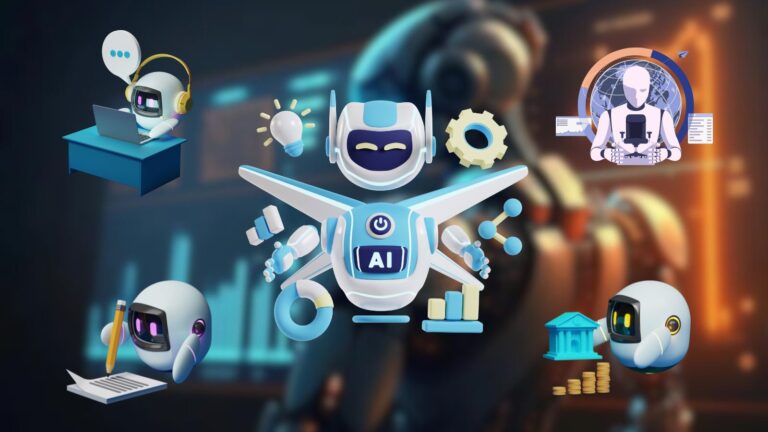Mastering Information Architecture AI: Key Examples & Best Practices
Introduction to Information Architecture AI
Defining Information Architecture in the AI Context
Information Architecture ai in the realm of Artificial Intelligence (AI) refers to the methodical structuring of data and information systems to support AI functionalities. This involves the organization, labeling, and management of data in a way that both AI systems and humans can interact with efficiently.
The Importance of Information Architecture AI Systems
Effective IA is crucial in AI systems for several reasons. It ensures that AI algorithms have access to well-organized and high-quality data, which is essential for accurate and efficient processing. A robust IA also facilitates easier scalability and adaptability of AI systems to changing requirements.
Fundamental Principles of Information Architecture aI
Balancing Simplicity and Complexity in AI Design
One of the key principles in AI IA is finding the right balance between simplicity and complexity. While AI systems require complex data structures to function effectively, these structures must not be so complex that they hinder performance or scalability.
Ensuring Scalability and Flexibility
Scalability and flexibility are vital components of AI IA. As AI systems grow and evolve, the underlying architecture must be able to support this growth without significant overhauls.
Real-World Examples of AI Information Architecture
Case Study: AI in E-commerce Platforms
E-commerce platforms leverage AI IA for personalized recommendations, inventory management, and customer service. These systems are designed to handle large volumes of data and user interactions, showcasing the efficiency of AI in managing complex information structures.
Innovative AI Solutions in Healthcare Information Systems
In healthcare, AI IA plays a critical role in managing patient data, supporting diagnostic tools, and improving treatment outcomes. This sector demonstrates the importance of accuracy and privacy in AI IA.

Designing Information Architecture ai: Best Practices
User-Centric Design in AI Systems
A user-centric approach in AI IA focuses on designing systems that are intuitive and tailored to the end-user’s needs. This involves understanding user behavior and preferences to create more engaging and effective AI solutions.
Integrating AI with Traditional Information Frameworks
Integrating AI with existing information frameworks is a best practice that ensures seamless operation and reduces the complexity of implementing AI solutions.
Challenges and Solutions in Information Architecture ai
Navigating Data Privacy and Security Issues
Data privacy and security are significant challenges in AI IA. Solutions include implementing robust security protocols and adhering to privacy regulations to protect sensitive information.
Overcoming Technical Constraints in AI Implementation
Technical constraints, such as limited data or computational resources, can impede AI IA. Overcoming these involves optimizing algorithms and seeking innovative ways to utilize available resources.
AI and Information Architecture ai in Mobile Applications
Enhancing User Experience with AI
In mobile applications, AI can significantly enhance user experience by personalizing content, optimizing app performance, and providing intelligent features.
Case Studies in Mobile App AI Integration
Examples of AI integration in mobile apps include intelligent assistants, recommendation systems, and user behavior analysis, all of which improve the overall functionality and user engagement.

The Role of Machine Learning in Information Architecture
Leveraging ML for Improved Data Organization
Machine Learning (ML) plays a crucial role in organizing and interpreting large data sets, making it an invaluable tool in AI IA.
Machine Learning Algorithms in Information Retrieval
ML algorithms improve information retrieval by making it more accurate and efficient, essential in both web-based and enterprise search applications.
Future Trends in AI and Information Architecture ai
Predictive Analysis and Its Impact on AI Architecture
Predictive analysis in AI IA is set to revolutionize how data is processed and used, offering insights and foresights that were previously unattainable.
The Evolution of AI in Digital Content Management
AI is rapidly evolving in the realm of digital content management, offering more sophisticated and automated ways of handling and presenting content.
Tools and Technologies for Information Architecture ai
Overview of Key AI Development Tools
There are numerous tools available for AI development, each catering to different aspects of AI IA, from data processing to algorithm development.
Selecting the Right Technology for Your AI Project
Choosing the right technology for an AI project depends on the specific requirements of the project, including the nature of the data, the intended use of the AI system, and the available resources.
Conclusion: The Future of Information Architecture AI
Summarizing Key Takeaways
In conclusion, AI IA is a critical field that underpins the success of AI systems. By understanding its principles, challenges, and best practices, we can better prepare for the future of AI.
Preparing for the Next Wave of AI Innovation
As AI continues to evolve, staying abreast of the latest trends and technologies in AI IA will be crucial for those looking to leverage AI in their domains.
Elon Musk Ai Company: Revolutionizing Technology And Innovation
FAQ








